Photographs: Yogen Shah-IPL 2010/IPL via Getty Images Sudhir Bisht
The modern day corporate world is something like the T20 game of cricket. It doesn't put too much virtue on seniority or past glory.
While the Indian Premier League has become the biggest sporting event in the Indian sub-continent today, its on-field games have picked up the good and the bad business practices.
A preliminary survey in any cooperative group housing society would reveal that the TRPs of the daily soaps that are aired between 8 and 10 pm have recorded significant dips whenever an IPL event is being telecast live.
A prime time news addict like me has sent all the Arnab Goswamis, the Rahul Kanwals, the Rajdeep Sardesais and the Nidhi Rajdhans of this world, on a long vacation.
My favourite news anchors get only two-and-a-half minute of my attention during the strategic time outs of the IPL match.
As IPL has evolved over the years, one can see it looking more and more like the corporate world. IPL's on-field games have picked up the good and the bad business practices.
The game may have been reduced in terms of its action time but more and more specialisation has come into the game. The days of one score players and one coach-cum-manager are passe. The teams today have become top-heavy, just like big companies have, with one team coach assisted by a fielding coach and a bowling coach and a retinue of trainers, physiotherapists and masseurs. Not to forget that there are mentors and performance analysts and even psychologists.
There are many other aspects that look so much similar to the business world. And there are many things that are happening in the IPL's version of cricket that will be reflected in the business world in the days to come.
Note: All pictures used only for representational purpose
Sudhir Bisht is the CEO of Clairvoyant Consultants. He can be reached at sudhir_bisht@rediffmail.com
Management lessons from the IPL games
Image: Amit Mishra, Sachin Tendulkar, Gautam Gambhir and Virat Kohli during a nets session at Edgbaston on August 9, 2011 in Birmingham, England.Photographs: Gareth Copley/Getty Images
Seniority no longer a revered asset
The match between KKR and RCB saw an ugly show of aggression between the two rival skippers. Gautam's wild celebration at Kohli's dismissal was followed by the latter menacingly marching towards the former.
Both kohli and Gautam play for Delhi Ranji side and not many years ago, Kohli used to look up to the established seniors from Delhi side, Gautam Gambhir and Virender Sehwag, for inspiration.
Gautam was already a very prominent member of the Indian team when Kohli made his ODI debut for India in 2008.
Gautam had such a soft corner for Kohli that in December 2009, he gave away his Man-of-the-Match award to Kohli in appreciation of young Kohli's good showing in the match.
In the last two years however the fortunes have changed and Kohli is now hailed as the young hot cricketer and Gambhir, who is seven years senior to Kohli, is out of Team India.
Such situations aren't new in the corporate sector.
A seasoned team leader of a BPO responsible for managing a big account welcomes a fresh trainee in his customer services team and within three years the trainee is given an independent responsibility by the management to lead another team that manages another account.
The younger leader may bring in more energy in her/his unit and this may impress one and all. The praise for the youngster in a conference or in a review may give rise to jealousy in her/his one-time mentor. The mentor-mentee relationship can transform into a peer-peer relationship and in the next few years the mentee may even get to a stage where s/he has to lead her/his mentor.
It is possible that Gautam Gambhir, in his wild celebratory mood, may have given vent to his jealousy, albeit unknowingly.
And when Virat kohli walked menacingly towards his one-time inspiration, he may have subconsciously tried to break the shackles of being at the receiving end of Gambhir's patronising behaviour.
The modern day corporate world is something like the T20 game of cricket. It doesn't put too much virtue on seniority or past glory. The Young Turks march past the old soldiers without even tipping their hats.
Management lessons from the IPL games
Image: The coin toss is undertaken before the 2010 DLF Indian Premier League T20 group stage match between the Kings XI Punjab and the Delhi Daredevils played at the Punjab Cricket Association Stadium on March 13, 2010 in Mohali, India.Photographs: Mark Kolbe-IPL 2010/IPL via Getty Images
The old guard keeps complaining but is anyone listening?
The IPL has been criticised by many eminent men and women. The purists have condemned it as something which isn't quite cricket. "Where are the spinners who flight their deliveries?"
"Where are the fast bowlers who bowl at 150kmph?"
"Where are the openers who made the act of 'leaving the ball going outside the off stump' an art-form?"
"How can they be paid Rs 25 lakh when they haven't even earned a national cap?"
And who are these critics? They are those unfortunate retired cricketers who haven't been able to land even one of the many jobs that are available to them, courtesy the IPL. The former cricketers who are now coaches or commentators are full of praise for IPL!
In the corporate world also we have listened to the senior Sales managers saying that the new sales executives go around doing their sales call in an air-conditioned car whereas what they, the oldies, got were cycle rickshaws and scooters.
An old sales person in a FMCG company was cribbing the other day to me.
"My boy, I used to go stock-ready on a tempo with all the tea packets. I used to take order, make deliveries and collect payments from the retailer myself. Not like your nephew who goes around in a Swift now." He lamented.
I had to remind this old friend of mine that if he went around in a tempo, his uncle went around in a horse-drawn cart.
Times change and the older employees keep getting nostalgic about their heroic days. To them the modern day generation of employees is all about maximum benefits without much sweat blood and tears.
One past cricketer was cribbing to me at Kotla, "These guys are so lucky. They wear helmets and protective pads all over their bodies. And yet they keep getting injured."
He went on and on with his complaints till I asked him if he in his entire career had ever dived the way the young guns were diving all over the field to cut-off a sure-shot boundary.
Management lessons from the IPL games
Image: Lalit Modi, chairman and commissioner of Indian Premier League attends the IPL Auction 2010 on January 19, 2010 in Mumbai, India.Photographs: Ritam Banerjee/Getty Images
Auction of players' skills; Best business practice
The good old Bishen Singh Bedi often sneers at the auction of IPL players.
Many of his ilk feel that an open auction is inhuman and despicable.
In the corporate world, auction is commonplace. From spectrum sale in telecommunication to the land sale in real estate, open auction is considered the best way to get maximum value for any asset. Open auctions are the best form of tender. They represent the supreme art of evaluation where the object of sale is subject to the pitched battle between various suitors.
In case of the game of cricket, the only tangible assets that are available for sale are the cricketers themselves. An open auction is the best way to avert any malpractice of underhand payment or unlawful gratification.
An open auction also aims at staving off any attempt to form cartels by either the players or by the franchisee. This best practice of open auction that has been borrowed from the corporate world is much more preferable to the secretive deals between franchisees and the players that would need to be facilitated by multiple agents, middlemen and brokers.
Management lessons from the IPL games
Image: Yusuf PathanPhotographs: Rediff Achives
Just as in the corporate world, higher remuneration doesn't lead to higher productivity
By putting a price tag on a player, the franchisees, in a way, give an indication of its expectations from a player. Higher the price tag, higher is the expectation of a franchisee from the player.
However just as in case of hiring business managers, highly paid cricketers may perform poorly and those who are at the bottom of the remuneration ladder may turn out to be star-performers.
It sounds so absurd when two middle order batsmen who play for the same team get vastly different remunerations. Both are expected to score with the bat but one can take a million dollar home, while the other batsman has to make do with a compensation package of just sixty thousand dollars.
It may appear a bit weird but in the corporate sector also people manning similar positions may find that their compensation packages are vastly different.
The disparity between the remuneration(s) of people manning the same position is much more pronounced in the game of cricket though.
Management lessons from the IPL games
Image: Brett Lee of the Kings IX bowling during the 2010 DLF Indian Premier League T20 group stage match between Mumbai Indians and Kings IX Punjab played at PCA Stadium, Mohali on April 09, 2010 in Mohali, India.Photographs: Graham Crouch-IPL 2010/IPL via Getty Images
Role conflicts in cricket; Bad practice borrowed from the corporate sector
Brett Lee has been appointed as the bowling coach for Kolkotta Knight Riders. He would also be their lead fast bowler. What would happen if Brett Lee, the bowler, is belted for 50 runs in his quota of 4 overs? Would he be able to keep his chin up and tell Lakshmipathy Balaji on how to bowl at the death overs the next day?
Such situations aren't uncommon in the corporate sector nowadays.
I know of a few companies where the Regional Manager (RM) leads a team of many territory managers (TM) but a territory is also assigned to the RM. This pitches the RM directly in competition with his own TMs when it comes to evaluation of the territory performance.
If the territory that is being managed by the RM directly doesn't achieve the budget numbers then the RM remains under pressure and is forced to compete with his own teammates.
This is one bad practice that cricket seems to have borrowed from the corporate world.
Just as the corporate world needs to imbibe the sporting spirit from the world of sports, the sporting bodies the world over are following the best practices of the business world to professionalise their set-ups.
Whether taking too much inspiration from the corporate world would mean loss of the sporting spirit for the game of cricket, is yet to be seen.
The ugly spat between Kohli and Gambhir attracted a frenzy of tweets and Facebook comments. Not to be left behind, fast bowler Sreesanth started tweeting about the 'slapgate' incident which happened between him and Harbhajan Singh five years ago. He certainly seems to be borrowing more from the world of politics than from the corporate world.

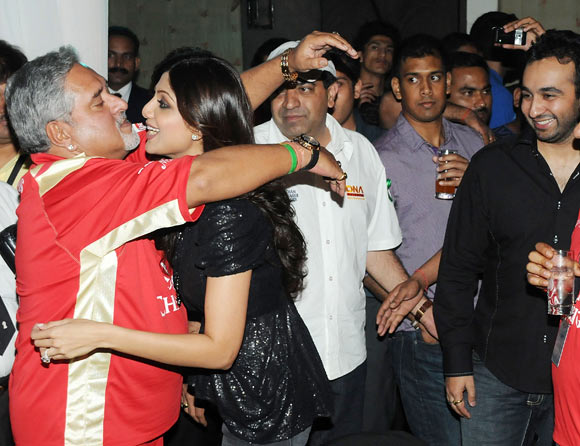
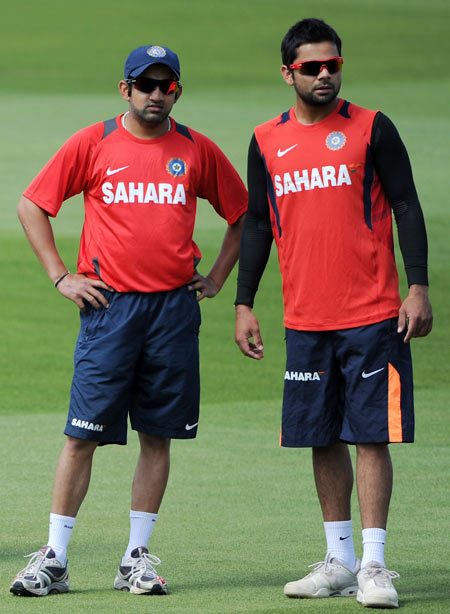
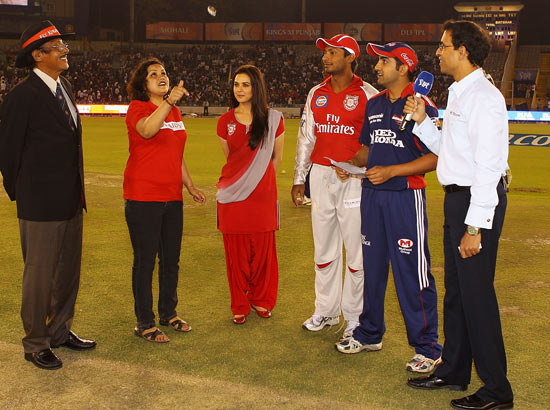
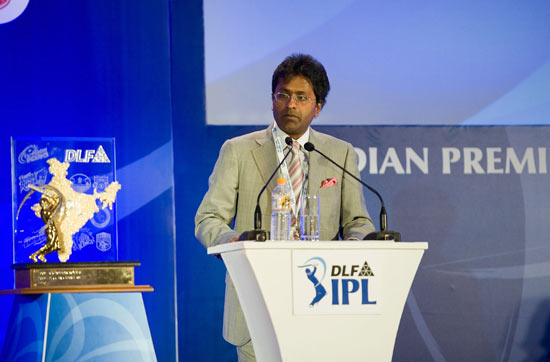
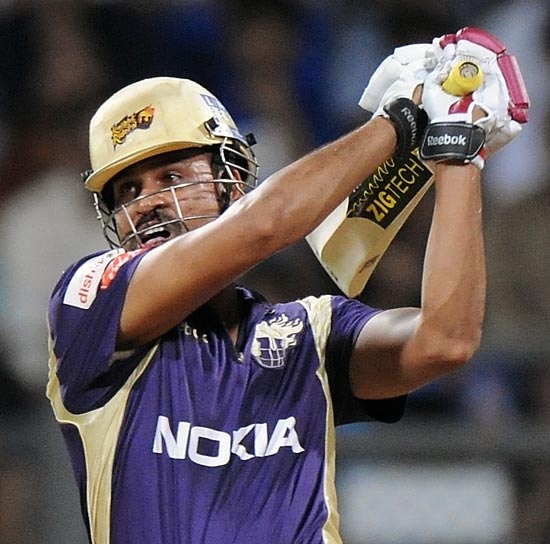
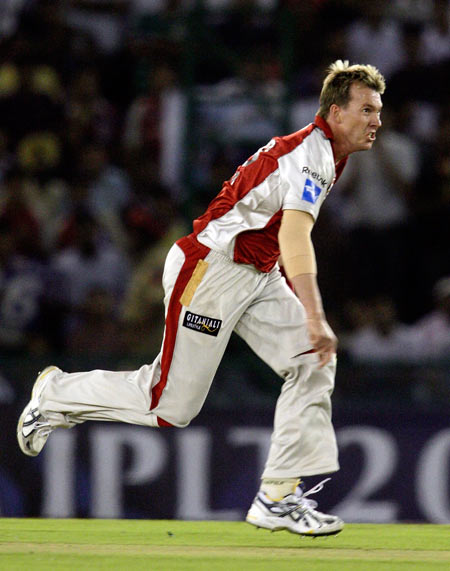
Comment
article